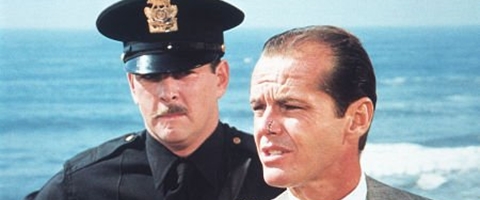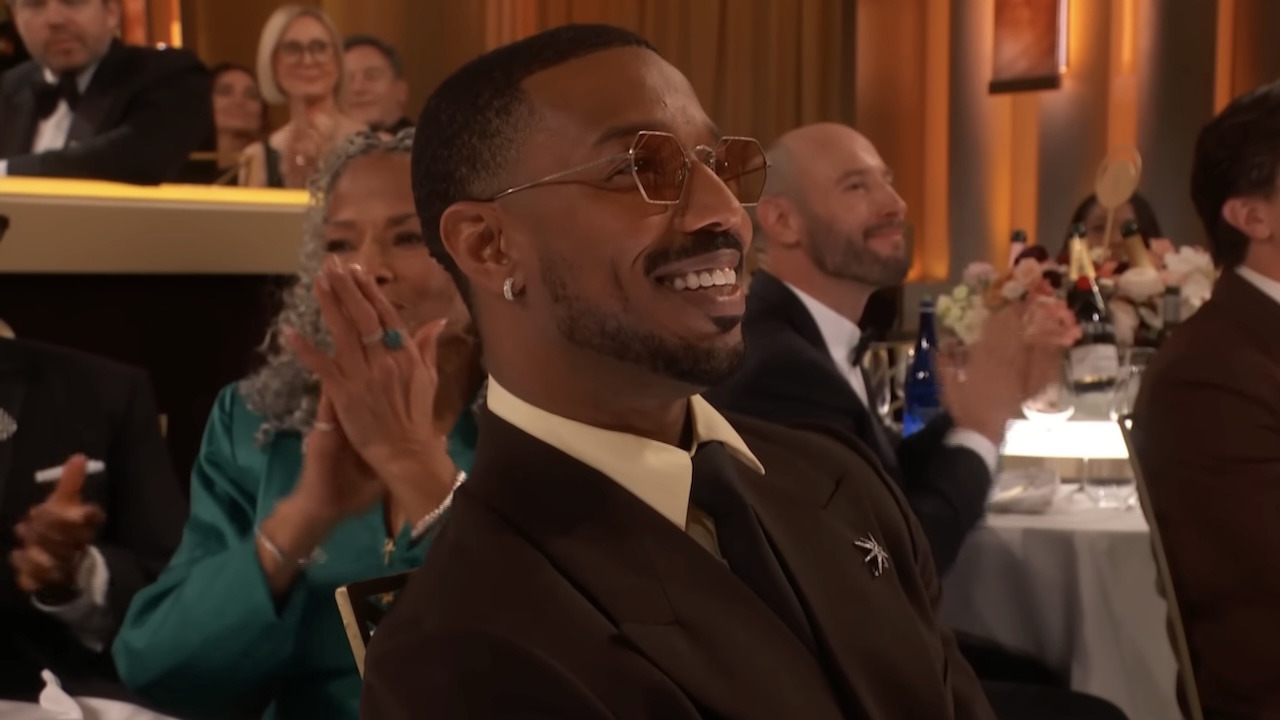Until I got my copy of the Blu-ray for Chinatown, I’d never seen the film noir classic in its entirety. Despite being a pretty huge fan of detective movies, I’d only ever seen a brief section on television many years ago. How’d that happen? No idea, but I’ve rectified it and joined the legions who feel it’s a great movie. If you’ve seen some recent Jack Nicholson movies and wondered, “How the hell did this guy get to be an icon?” you need to go back and watch 1974’s Chinatown. It will wash the taste of The Bucket List right out of your mouth. Jack is Jake Gittes, a private eye in 1930s Los Angeles who looks great in a white suit and is happy to take pictures of your spouse cheating on you. Gittes is hired by a woman to follow her husband, Hollis Mulwray (Darrell Zwerling), and catch him cheating. Gittes gets the job done, only to discover that the woman wasn’t really Mrs. Mulwray, and the real Mrs. Mulwray (Faye Dunaway) is at first planning to sue Gittes but later wants him to drop the whole thing.
As is often the case in this type of movie, Gittes pursues the case anyway, and when Mr. Mulwray, the Chief Engineer of the Los Angeles water company, goes missing along with the young woman he was seen with, Gittes is on the case like, well, a 1930s detective. His investigation into the disappearance runs him into Mrs. Mulwray’s father, Noah Cross (John Huston), who has a persona that screams “BAD GUY.” Cross is also involved in the plans to bring water to Los Angeles, and determining who will profit from that process. Here’s a hint: it’s not going to be the general public.
Although Chinatown predates the Occupy movement by nearly 40 years, it’s probably the one movie that says everything they would want to say if they could ever come up with a coherent message. Gittes' investigation is about the few screwing over the many and disposing of whoever gets in their way. The dead bodies start to stack up and Gittes runs down a few false trails before he finally gets a handle on what is going on.
So, why is Chinatown considered so great? The script is interesting and twisty, the acting is top notch, the look is perfect, and the title says it all. Gittes used to work as a cop in Chinatown but stopped when he realized that, while trying to help, he was actually making things worse. That sums up the theme of the movie in a nutshell. The plot does lose some sense of logic if you look at it too closely, but that’s true of almost any detective story. People in these stories act in ways that advance the plot and suspense rather than in a way that a person would really act. It’s a minor quibble. Everything else is literally as good as it could be.
If you still haven't seen Chinatown, it’s worth a look. More than that, it will keep you engrossed with both the water-rights story and the more personal issues in the Cross/Mulwray family. This Blu-ray release of Chinatown seems to be the first new release since a two-disc DVD set in 2007. The movie, while a slowly paced period piece, really deserves a clear, crisp picture. The costumes, cars, and sets are impressive, and the whole look benefits from the HD treatment. Some of the extras are from 2007, but they are a nice bunch and overall this is a pretty impressive single disc.
The main extra is a new commentary by screenwriter Robert Towne and director (just not of this particular movie) David Fincher. Towne brings first-hand stories and insight, and Fincher brings a fan and film student’s excitement and awe. Between the two of them, they make for a very informative commentary without being dull.
There are a trio of extras that all seem to date from the 2007 DVD and feature Jack Nicholson, Roman Polanski, Robert Towne, and producer Robert Evans commenting on various aspects of production. This is interesting and informative, and although they are obviously reminiscences rather than from the time the movie was filmed, they don’t seem to pull any punches when it comes to disagreements. Evans was shot in profile for a reason that might make sense if I knew more about him. Faye Dunaway doesn’t take part, but no one explains why. Overall, the three parts total about an hour and do a good job enhancing the commentary.
Your Daily Blend of Entertainment News
The main players from the movie are not involved in “Chinatown: An Appreciation.” A few filmmakers (Steven Soderbergh, Kimberly Pierce, Roger Deakins, and James Newton Howard) all talk about their love for the movie, script, music, acting, and so on. It’s a decent extra, but it’s funny how there are so many clichés in these comments. Soderbergh says there are so many layers in the movie but never actually talks about what he means or gives examples.
Other than a trailer, the only other extra is both long, educational, and really, really weird. Called “Water and Power,” it’s a documentary about how Los Angeles’ main water source comes from the Owens Valley in Northern California. Bringing water to Los Angeles is a major plot element in Chinatown, but despite the occasional presence of Robert Towne, this has almost no direct connection to the movie itself. That doesn’t mean you won’t get a lesson in both the history of how water got to Los Angeles and the ecological damage of Los Angeles water rights. If you want it, that is.
Although the water documentary is a little out of place, it does round out the background information on the movie. The commentary and featurettes are very worthwhile and the movie itself is a gem.

